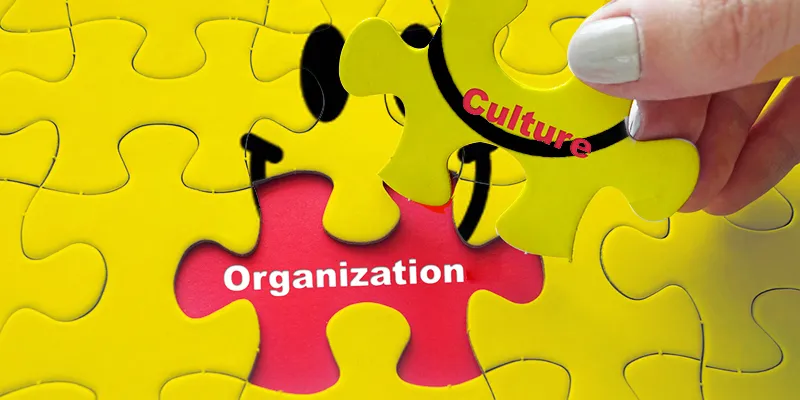How to create a company culture that your team will love
Instances of aggressive company cultures have, once again, put the spotlight on organisational culture and understanding what it actually means. A healthy work environment not only ensures a happier workplace but also greater returns on profitability and revenue.

Being intentional about your organisation’s culture can go a long way in guiding how your organisation grows. While assessing risk, growth and product development are essential in building a solid foundation, your company’s core values set the tone for years to come and result in building a successful startup.
Many organisations start off on the right note replicating the culture the founding team had in mind, while many others transform into something completely different from what they started out as. A company’s culture is much more than its vision and identity. It’s about giving people a common ground, a sense of ownership, greater engagement and ensuring people-oriented processes. Did you know that companies with happier employees outperform competition by an average of 20 percent and earn 1.2-1.7 percent more than their peers?
In recent months, investigations into aggressive cultures and management structures across a few of the world’s most successful companies have, once again, put the spotlight on company culture. Now, companies are looking beyond bonuses, traditional benefits and instead redesigning organisational culture. A lot of it means replacing organisational hierarchies, making things team-centric and empowering people to go the extra mile.
Building a more connected workplace
A recent report by Dale Carnegie Training showed that Indian employees are more engaged than their global counterparts, with such employees constituting 46 percent of the workforce compared to the global average of 34 percent. However, the fact remains that 54 percent of the Indian workforce is unhappy at work. Workplace stress, poor work-life balance and low motivational levels negatively impacts workforce.
Ensuring a connected workplace keeps everyone aligned to the larger vision. A company’s culture has to trickle down from the company’s oldest employees to its newest hires and one of the ways to do this is by keeping channels of communication open. Promoting employee wellness, encouraging engagement and ensuring a positive work culture are some of the things companies can do to boost employee motivation. A PwC study showed that employees most committed to their organisations put in 57 percent more effort on the job — and, are 87 percent less likely to resign — than employees who consider themselves disengaged.
Going beyond culture fits and creating a balance
While a lot of companies believe in hiring culture fits-- it may not necessarily work for a company trying to build a heterogeneous team. Going beyond hiring culture fits results in, diversity in thought and ideas. Last winter, in LinkedIn’s “Talent on Tap” video series, LinkedIn CHRO Pat Wadors and VP of Global Talent Acquisition Brendan Browne explained why it is important to go beyond culture fits and instead hire keeping diversity in mind. They argued that there was no particular set of qualifications that would make someone a torchbearer of the company culture, and, hence, looking for culture fits may not be what your organisation needs. One way to do this, is by breaking down the meaning of culture fit into tangible pieces and looking at it from the perspective of style fit, skill set fit and expectation fit.
Measure good work through a system
There is a need to bring objectivity to performance through a feedback mechanism. Rewards and recognition of good work through an appraisal process or gamification create a scenario wherein both the individual and the organisation wins. Competitive salaries, loyalty bonuses, quarterly rewards, employee engagement activities, healthcare and finance camps, and structured leave policies are some of the benefits companies offer as part of their systemic processes. However, it is important to look beyond these benefits and measure good work for greater gains.
Speaking of measuring good work, retention is far more important for growth than continuously seeking new talent to grow one's teams. Did you know that only 12 percent of employees leave their jobs for more money elsewhere, so it isn’t as much about salaries than about being happy at work. After all, 75 percent of people don’t quit their jobs; they quit their bosses. It is essential to keep the team in the winning area -- helping them align to an entrepreneurial bent of thinking to enable them to grow.
Creating value
The culture of an organisation should be centred on how various stakeholders -- employees, clients, partners, vendors and shareholders -- create value for each other and, in turn, get value. From an employee perspective, defining clear goals, measuring achievement in an objective manner, honesty and transparency are must-haves to enable employees to create value. Additionally, an innovative environment helps align employees with the organisational strategy and in creating a culture of value creation.
A company’s culture has a direct impact on employees and there is indeed a correlation between happiness at the workplace and productivity. The Department of Economics at the University of Warwick found that happy workers are 12 percent more productive than the average worker. Whether you’re a Fortune 500 company or a startup, you can turn your company’s culture around and watch for returns on employee productivity, happiness as well as revenue.
“No company, small or large, can win over the long run without energized employees who believe in the mission and understand how to achieve it.”
– Jack Welch, former General Electric CEO.
(Disclaimer: The views and opinions expressed in this article are those of the author and do not necessarily reflect the views of YourStory.)







